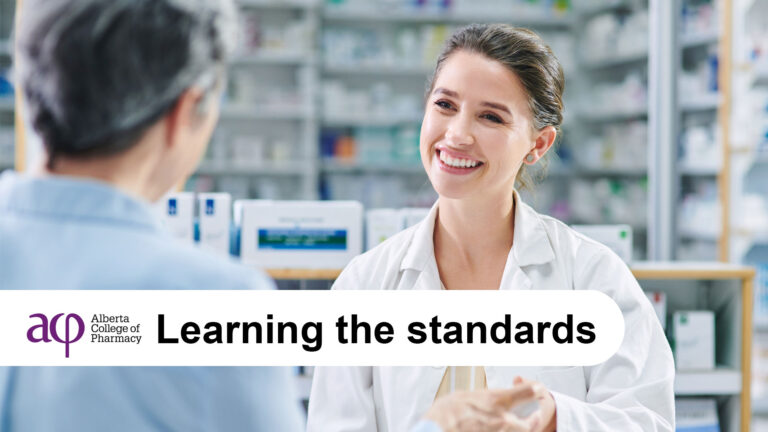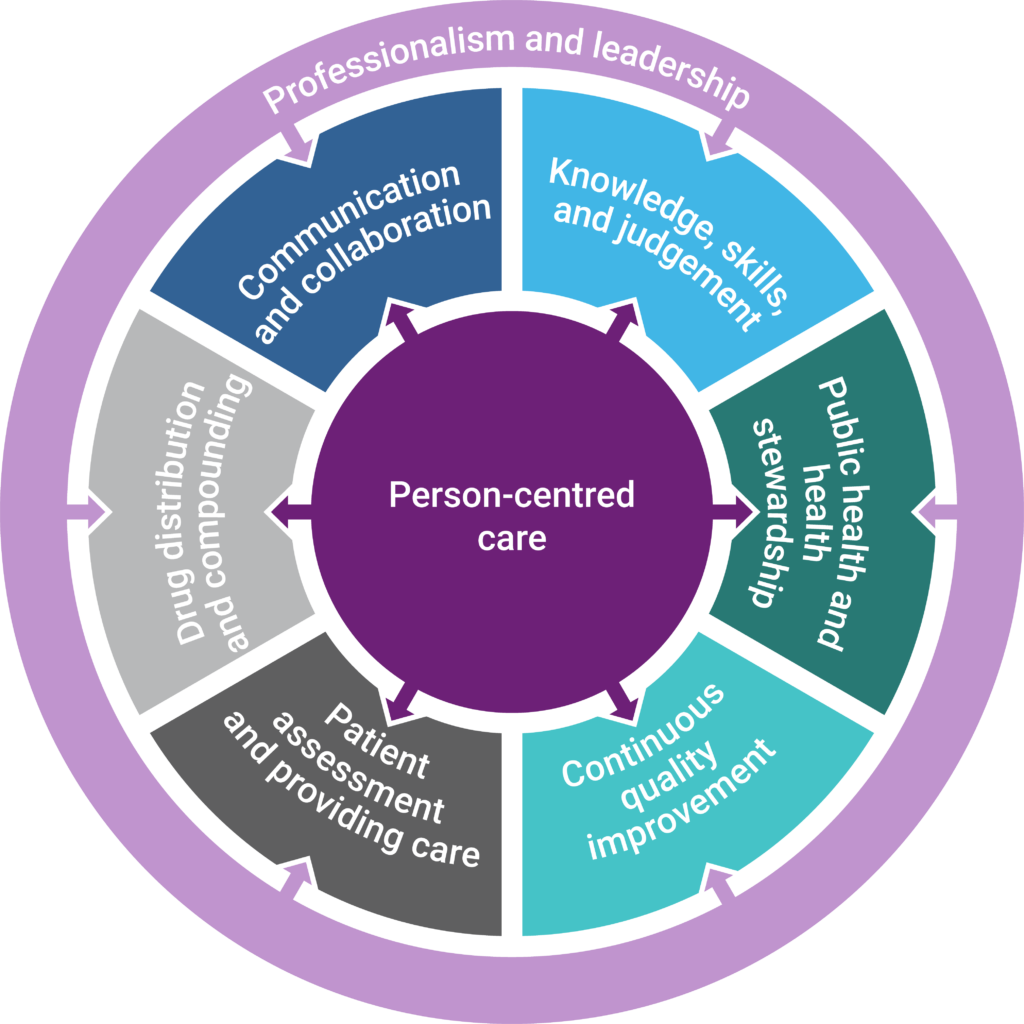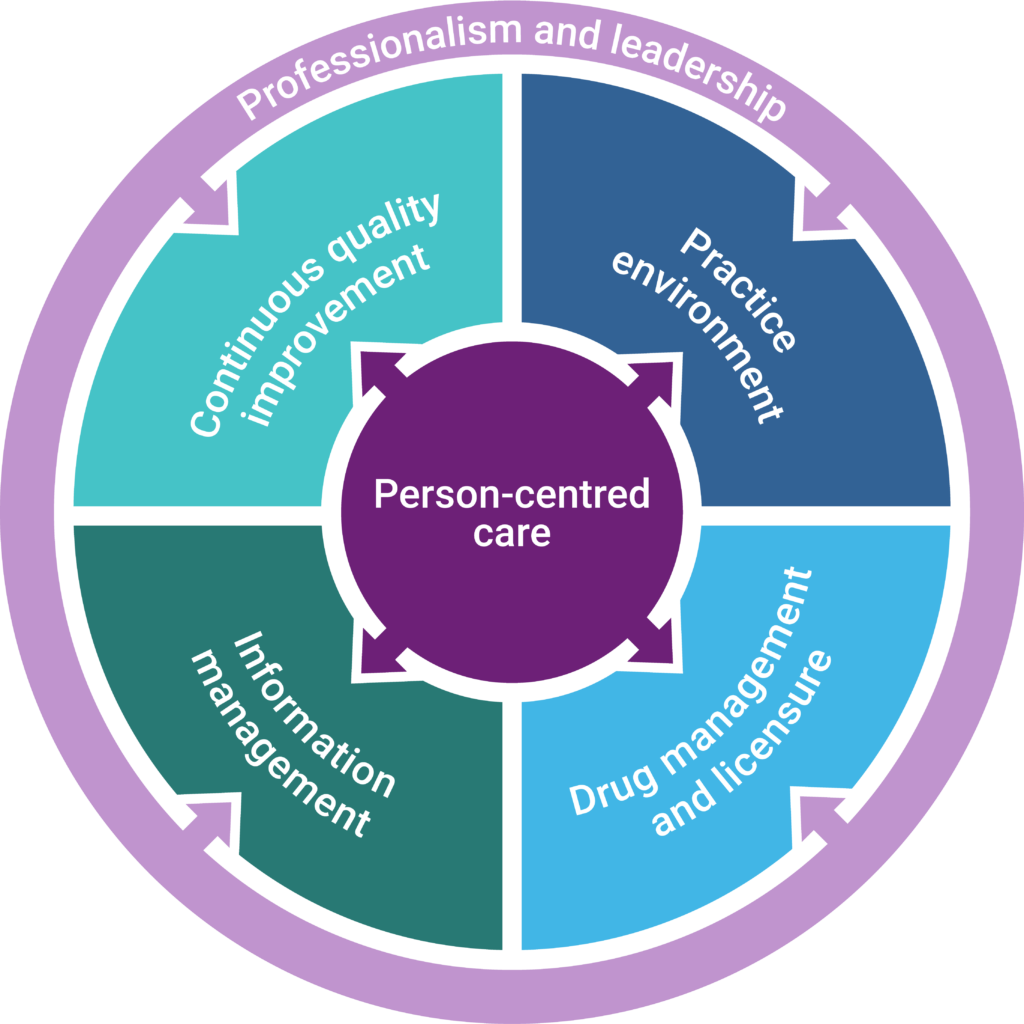
Leadership is one of the tenets of professionalism for all pharmacy technicians, pharmacists, and licensees. Every pharmacy professional strengthens their practice when they strive to be a leader and a mentor in their workplace, profession, and community.
The domain of professionalism and leadership is fundamental to all activities that regulated members perform, which is reflected in the new Standards of Practice for Pharmacists and Pharmacy Technicians (SPPPT) and Standards for the Operation of Licensed Pharmacies (SOLP).


Regulated members are leaders
Every regulated member plays an important role in contributing to an environment through which they provide quality care to patients. Standard 2.1 of the new SPPPT outlines expectations for regulated members to work collaboratively, lead by example, hold themselves and others accountable, and overall adhere to a high standard of leadership and a culture of accountability.
Newly defined leadership roles
The new SOLP empowers effective leadership by introducing the concept of an operations supervisor (Standard 2.12). This concept was added to the new standards to enable licensees to delegate administrative, managerial, and operational duties to a pharmacy technician or pharmacist designated as an operations supervisor. Delegating leadership roles to qualified regulated members will support effective operations and, in turn, will promote quality patient care.
Defining the licensee’s role
The licensee plays a critical role in the pharmacy, personally managing, controlling, and supervising the operation and practice of a pharmacy. The new SOLP defines the roles and responsibilities of the pharmacy’s licensee. Key enhancements include
- supervision and leadership requirements when a member of the pharmacy team practises at a location offsite from a licensed pharmacy (Standard 2.10);
- overseeing non-pharmacy regulated health professionals working as part of their pharmacy team (Standard 2.11); and
- ensuring appropriate supervision of unregulated employees, including using critical steps and independent double checks to enhance patient safety (Standard 2.13).
Licensees also provide leadership in the pharmacy by ensuring that proprietors provide resources and support the licensee and regulated members comply with the legislative framework. The new SOLP defines the roles and responsibilities of the pharmacy’s proprietors and proprietor’s representatives. Key enhancements include
- The responsibility of both the proprietor’s representative and the licensee to create a safe and professional work environment (Standard 3.1).
- The new standards address appropriate staffing and employee well-being to support the provision of quality care while at the same time ensuring a safe environment for pharmacy team members.
- Clarifying that proprietors are prohibited from imposing quotas that require licensees to achieve any measurement of professional services or revenue obtained from professional services provided to patients (Standard 2.1.2).
Pharmacy technicians, pharmacists, and licensees are all encouraged to reflect on their leadership roles in the pharmacy when preparing to implement the new standards on February 1, 2025. Every regulated member plays a leadership role and the new standards provide guidance and support to fulfill that role.




